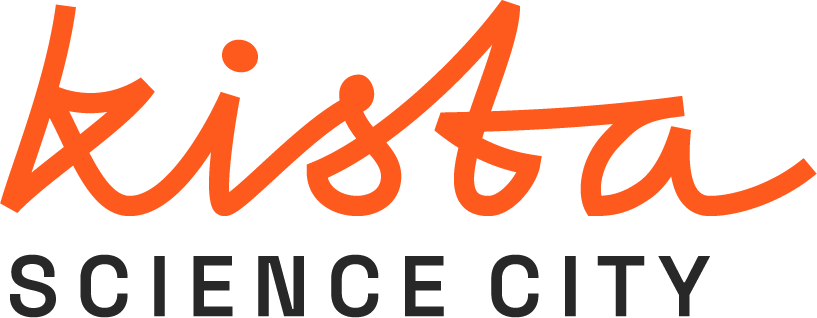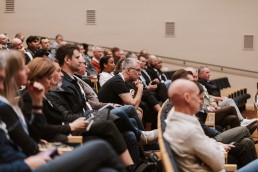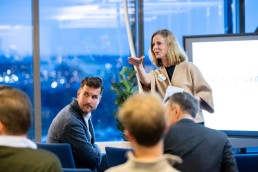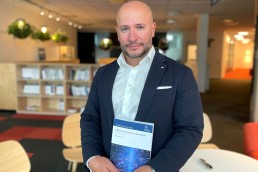Cybersecurity
In the fast-paced world of business growth, cybersecurity can sometimes take a back seat. However, in Sweden—one of Europe's most digital and innovative regions—this oversight can make companies especially vulnerable, impacting every aspect of the business.
The absence of a robust security program can exclude you from crucial markets and client interactions. Moreover, a data breach can lead to substantial financial losses, erode trust, and cause serious harm to individuals linked to your operations. We see these vulnerabilities not just as obstacles but as critical factors that can bottleneck sustainable scaling. It’s crucial to establish secure routines and practices early to safeguard your future business opportunities.
To help you get started we’ve designed different programs and activities to initiate or strengthen your security together with experts and other companies.
Needs analysis

Gain insights into your company’s digital transformation stage for tailored strategies towards progress.
Expert advice

Elevate your cybersecurity strategy with tailored guidance, addressing both product and organizational needs.
Testing

Ensure the security and compliance of your digital systems with critical services from our partner organisations.
Training

Access specialized training sessions designed to address your needs.
In-depth company needs analysis
Our digital speed test offers a detailed understanding of your company’s digital transformation, highlighting areas for growth.
- Digital Speed Test: Assess your digital journey and explore customized pathways for advancement.
- Cyber Hygiene for Supply Chains: Developed to manage complexities and fortify resilience in your supply chain, promoting trust and security.


Test before invest validation
We offer serveral types of testing, providing controlled testing environments, real-threat simulations, and various scenarios.
- Specialized training in a secure environment, meticulous testing of digital products and services, development and analysis of digital twins for sector-specific insights, participation in cybersecurity research projects, and support in certifying products in accordance with the EU’s Cybersecurity Act.
- Vulnerability assestment/ penetration tests.
Strategic and customized training
We provide expert cybersecurity advice tailored to your company’s unique requirements, extending beyond product-focused insights to encompass organizational structure considerations. Our approach covers domains such as IoT Security, Cloud Security, Software Security, 5G Security, AI Security, Automotive Security, and Cybersecurity Certification.
- Advisory Services: Benefit from tailored advice from our experts in cybersecurity, NIS 2, GDPR, and SSF 1101 compliance.
- Boardroom Training: Access specialized training sessions designed to address the specific regulatory requirements of your company, ensuring informed decision-making at the highest level.

Related projects
February 3, 2025
Strengthen your cybersecurity skills
A program for companies to strengthen their cybersecurity skills and strategic capabilities.
October 10, 2023
Sweden Secure Tech Hub
Sweden Secure Tech Hub helps small and medium-sized tech companies to create safer digital products and solutions – starting already in the…
April 13, 2023
Business development program in Cybersecurity
Ett program för bolag i Stockholm som stärker företagets kompetens och strategiska förmåga inom cybersäkerhet.
Related articles
May 23, 2025
Innovation and security in the grey zone
The boundaries of conflict are shifting. Today, national security isn’t just tested on battlefields, but in boardrooms, research labs, and everyday digital infrastructure.
April 10, 2025
Riding backwards into the future
Staff perspective: Key takeaways from Forum International de la Cybersécurité 2025 in Lille!
March 6, 2025
Building resilience: Cybersecurity innovation in Kista
Cybersecurity is a key part of the modern digital landscape. As technology evolves, so do cyber threats—making security a top priority for businesses, governments, and researchers alike.
February 4, 2025
Innovation and Defence: NATO Innovation Fund in Kista
Securing funding and market fit can be challenging for startups. Partnering with the Swedish defense sector offers unique opportunities to tackle real-world security challenges.
February 3, 2025
Strengthen your cybersecurity skills
A program for companies to strengthen their cybersecurity skills and strategic capabilities.
October 30, 2024
Future-proofing Sweden’s cyber defenses
As Sweden’s digital infrastructure grows, so do the risks to many critical services.









